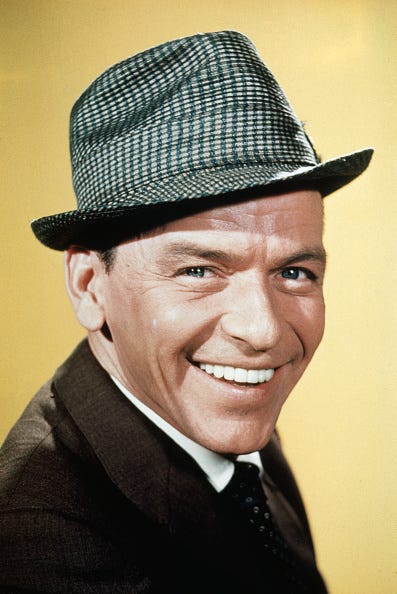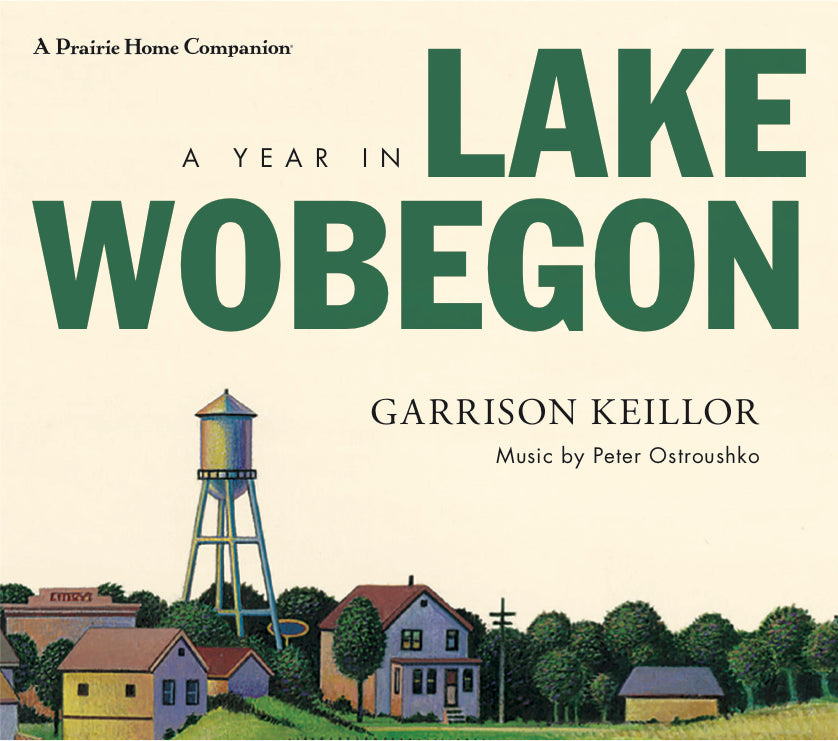The Writer's Almanac from Tuesday, December 12, 2006
The Writer's Almanac from Tuesday, December 12, 2006
"Night Below Zero" by Kenneth Rexroth, from The Complete Poems of Kenneth Rexroth. © Copper Canyon Press.
It's the birthday of Frank Sinatra, born in Hoboken, New Jersey (1915). His mother was a midwife and a saloon owner, and she encouraged him to have big dreams as a kid. He spent a lot of his childhood sitting on the Hoboken wharves, staring at New York City, imagining how he could make a name for himself. It was his uncle who introduced him to music, and bought him a ukulele. He liked to sit on the curb at night, under a lamppost, and strum. He also liked to sing along with the player piano in his parents' saloon, and occasionally one of the men in the bar would pick him up and sit him on the piano. One day, a customer gave him a nickel for a song he sang, and he decided that he wanted to spend the rest of his life getting paid to sing.
He got sidetracked for a little while when he got into the newspaper business, first working on a delivery truck and then as a copy boy. But one night he saw Bing Crosby sing in Jersey City, and that persuaded him to quit his day job and focus on music.
The first singing group he joined only let him in because he had his own car and could drive the group to gigs. The group won an amateur singing contest on a radio show with the largest call-in vote in the show's history, and they got a regular job touring with another band. Sinatra eventually began working on his own, singing in bars and roadhouses. The trumpeter for Benny Goodman saw one of Sinatra's performances, and offered to hire him as a vocalist for $75 a week. But he told Sinatra that he had to change his awful name. Sinatra said, "You want the voice, you take the name." And so he got to keep it.
But Sinatra's big breakthrough came when he joined Tommy Dorsey and his band in 1940. Their recordings of "I'll Never Smile Again," "This Love of Mine, and "Night and Day" became the best-selling records ever sold at that point in history.
Sinatra later said he learned his distinctive vocal style from the way Tommy Dorsey played trombone, sliding from note to note and then holding long pauses. But after two years with Dorsey's band, he decided to become a true solo singer. His first booking as a soloist was an eight-week run at New York's Paramount Theatre, longer than any other solo engagement at the Paramount up to that time. His press agent was so nervous about his debut that he hired a dozen girls to stand at the front of the theater to swoon and scream, but it wasn't necessary. Hundreds of other women showed up and did the same thing.
It's the birthday of French novelist Gustave Flaubert, born in Rouen, France (1821). A diagnosis of epilepsy got him out of the law school his parents had planned for him, and so he spent much of his youth around the world with his bohemian friends, going on an extended journey through southern Europe and the Middle East, going to brothels, smoking hashish, and collecting artifacts from ancient civilizations.
While traveling, Flaubert worked on his first novel, an elaborate historical romance set in the fourth century called The Temptation of Saint Anthony. When he showed it to friends, they told him to throw it into the fire and never mention it again. Instead, they recommended that he try to write a novel about ordinary middleclass French society. So Flaubert took his friends' advice and moved home with his mother to do research. He had heard a story about a young married woman who committed a series of affairs and then died, leaving her husband with numerous debts, and that gave Flaubert the idea for Madame Bovary (1857).
It's the story of Emma Bovary, a provincial housewife who spends all her time reading romance novels. After marrying an ordinary country doctor, Emma Bovary realizes that her life will never compare to the books she loves, and so she begins a series of love affairs to stave off her boredom.
It took Flaubert five years to write the novel. Part of what made the writing so difficult was that he wanted to describe even the most ordinary things in a new way. He said, "It is so easy to chatter about the Beautiful. But it takes more genius to say, in proper style, 'close the door,' or 'he wanted to sleep,' than to give all the literature courses in the world."
Madame Bovary became a big success when the government attempted to censor it, and Flaubert won the court case. We still remember Madame Bovary as Flaubert's great masterpiece, but in his lifetime he was best known for his second book, Salammbo (1862), a novel about pagan rituals and human sacrifice that became a huge best-seller when it was published, though it is rarely read today. Flaubert said, "To be stupid, selfish, and have good health are three requirements for happiness, though if stupidity is lacking, all is lost."
Be well, do good work, and keep in touch.®
One might think not a lot happens during a course of a year in a small town, but one would be wrong! This collection gathers 12 "above-average" stories representing all the goings-on in Lake Wobegon during one calendar year. Family gatherings, holiday celebrations, the predictable, the unexpected -- it all happens in "the little town that time forgot and decades could not improve." CLICK HERE to order A Year in Lake Wobegon by Garrison Keillor (3 CDs)





